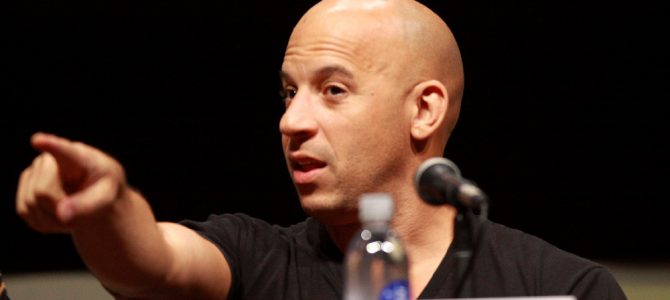
Vin Diesel is the Sylvester Stallone of this generation, and the “Fast and Furious” franchise is his “Rocky.” These simple stories succeed when sophisticated filmmaking seems to be all about sickness of soul. They are stories about ethnic pride and manliness in lower socioeconomic classes that stand in opposition to the liberal myth of progress and the people who succeed in such a world.
It’s worth pursuing the comparison because it says a lot about American movie-making and populism. If you recall, the original “Rocky” was not just an exercise in American myth-making about self-made individualism. It was also a realistic look at the difficulties of grounding an American man’s sense of dignity when American culture is in a crisis of confidence.
“Rocky” was released into late-’70s economic depression and cultural malaise, its protagonist from a working-class neighborhood. It is no accident that Balboa’s nickname embodies the ethnic identity and strength so important to the character and community’s redemption arc—the “Italian Stallion.”
There was a similar authenticity to the “Fast and Furious” story, where the pride of standing against the laws meant you have no future in America. But that’s inevitably been sacrificed in the sequels. So what happened to the “Rocky” sequels?
Well, in America it’s hard to argue with success, so they abandoned moral realism: After all, who gets tired of winning (Trump campaign promises aside)? Rocky ended up being the face of the Reagan era—fighting the Russians in red, white, and blue shorts. Stallone did likewise in his “Rambo” sequels, also a major letdown after the original, fighting alongside the primitive but noble Afghans, and fighting again in Vietnam—to win. With Stallone, America was going to get its wounded pride back.
Outsider Heroes Who Nobly Fight the Establishment
Like Stallone, Vin Diesel has taken on the mantle of populism, but for a new age. Technology and diverse casts including strikingly attractive girls are necessities of this age, just like ethnic pride and struggle were necessities of that age. This is ultimately about creating a product that gives the American working class its dignity, in a time where it rightly senses power is centralized in the hands of elites who don’t seem to know what they’re doing. I’m not saying these movies are all about politics, or secretly political. I’m saying that they depict social situations where the people have to look for outsider heroes who fight the establishment.
So let’s think more about the manliness problem. Another thing Vin Diesel and Stallone have in common is an understanding of the yearning for nobility that brings people to action movies. They want familiarity with manly men; they want to believe that manliness could be tamed—by camaraderie, by the love of a good woman, by lessons learned yielding to temptation.
They also hope being noble could mean being somewhat successful. Diesel, more than anyone since Stallone, sells people on the idea that rebelling against the system is not necessarily self-destruction. People want that so badly that Stallone has made a new fortune in the last decade by bringing back the old actors of ‘80s action movies in the “Expandables” trilogy. Diesel is doing the same thing, even bringing in action mainstay Jason Statham, also of the “Expendables.”
Why We Are So Fast and Furious
Vin Diesel is the true heir of the action movie, which was the last American attempt to say that moral virtues matter irrespective of intellectual virtues. That manly men do not need to be jerked around by tech oligarchs. With Disney-Marvel, America has turned the previous generation’s villains into our heroes: The sarcastic sociopathic sophisticated types played by prestigious British actors in the 80s—Alan Rickman in “Die Hard”—are now tech-scientific geniuses with an oligarchic contempt for most people and who are utterly incapable of love and friendship, such as Benedict Cumberbatch in “Dr. Strange.”
The reason Vin Diesel sells is aptly summarized in the title “Fast and Furious.” Fury is the natural response of manliness to marginalization. Why is there a sophisticated, upper-class blonde white woman of a certain age as the antagonist in “Fate of the Furious”? Because she is the perfect image of class privilege emasculating lower-class men. This is utterly ignored, but it’s no secret: Even the trailer for the new movie shows how this woman manipulates the man into betraying everything sacred to him just so she can get more power. It’s all about anti-elite sentiment. After the elections of 2016, it’s much harder to ignore it than it used to be.
As for speed, that is freedom of the soul. Whenever I go around America, I count the many reiterations of muscle cars of the ‘70s— throwback Dodge, Ford, and Chevy designs equipped with the bells and whistles of new technology. There’s a reason these cars still sell. Compared to the many indignities of everyday life, fast cars are a bit of a lesson about manliness—how to use power for good.
The love of tuning cars also speaks to a certain freedom American men enjoyed before technology made it impossible for most to repair cars. The yearning for freedom is everywhere on display in this series of films, because in the new world of technology, there’s nowhere you can run from the state, from surveillance, from being embedded in situations not of your choice.
What future is there for these passions that center in manliness? In a future of driverless cars you don’t even own, but rent for access whenever you feel like it, without any attachment, we trade fast and furious for quick and comfortable. But the yearning for a kind of dignified manliness is still there, and those who see that will make a lot of money speaking to it.









